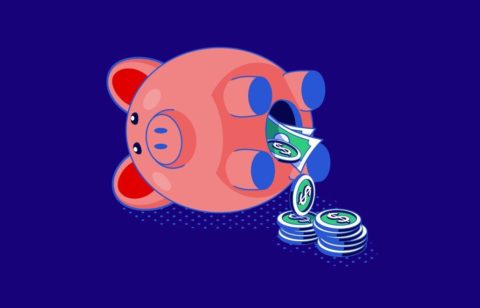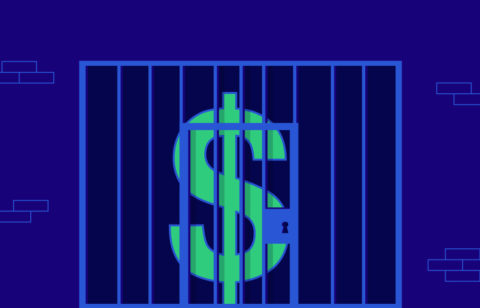Credit counseling is one of the many debt relief options you could use to pay off your debt. Since it is often caused by past financial mistakes, this type of help can provide a clear understanding of what you did wrong and how to avoid future errors.
More than just creating a payment plan that will get you out of debt, you also need to establish what got you into arrears in the first place. Credit counselors are certified and trained in the areas of consumer credit, money and debt management, and budgeting.
With the support of a financial expert, you can gain invaluable insight into your spending habits, and how to improve your situation moving forward. For example, you and your counselor will likely discuss important topics like budgeting, cash flow, having an emergency fund, and more.
What does credit counseling entail?
The first step is to speak with a counselor to explain your situation and debt issues. During your initial meeting, the counselor will take a comprehensive look at your current financial situation.
They will analyze your situation, talk to you about planning and help you better understand the world of finance. An initial counseling session typically lasts one hour, after which you can schedule follow-up sessions as needed.
A debt management plan
Once a credit counselor understands your issues and needs, they will help you create a debt management plan (DMP). It will include making a single payment toward your debt each month.
You will deposit an agreed-upon amount each month into an account within the credit counseling organization. The counselor then uses the funds to pay your unsecured debt, such as credit card bills, personal loans, some student loans and medical bills.
The debt payments are based on a schedule that you and the counselor create together. Once that is done, creditors typically need to also agree to the repayment plan.
Counselors also advocate for their clients by asking creditors to lower interest rates or waive fees. On-time consistent payments are the key to success in this type of program. You could pay off your debt in as little as 48 months, but it might take a bit longer.
What are the DMP steps?
During the credit counseling session, there will be no direct action towards solving your debts. It will usually be about analysis, planning and education. Let’s define each part:
Analysis
During this part, you will need to provide the following to your credit counselor:
List of all your debts
You will find this information on your credit report, or the credit counselor can pull a copy for you.
Details of your monthly expenses
It is important to provide a complete list of your bills and the most near-accurate estimate of how much money you need to cover them.
Net income
List all regular income that you bring in every month. Include your salary, benefits, investments, and other sources that help you cover your monthly expenses. Then subtract this number from your monthly expenses.
This information can help your credit counselor analyze the depth of your financial situation before devising a payment plan.
Planning
The credit counselor will then help map out your debt relief plan. At this point, this is just a general overview of how you can manage your balances.
They will point out which options suit your debt and finances best. You can discuss your goals with the counselor so that they will understand what your post-debt situation should look like.
For instance, if you want to get out of debt quickly, they may suggest debt settlement or bankruptcy as an option – at least if your finances can’t accommodate any other solution.
Education
One of the most helpful parts of credit counseling is the education you will receive. You can use personal finance tips like budgeting, saving and smart spending after you have paid off your debt to remain financially independent.
Is credit counseling for you?
At this point, you may be asking yourself if this is the best route for you to take. In most cases, it may not be enough. Adding a second debt relief option to the mix can offer a more direct plan to pay down your debts.
National Debt Relief can help you pay off your debt for less than you owe. And our Debt Specialists will support you every step of the way.
Other Credit Counseling FAQs
Apart from the information above, here are a few other commonly asked questions about credit counseling.
How is debt management involved?
Debt management is the part of credit counseling that pays off your debt. It involves the creation and implementation of a debt management plan that contains your proposed low single monthly payment to creditors. The counselor will also help you negotiate this repayment plan to creditors, which increases the chance of them accepting it.
What debts can be helped through credit counseling?
The counselor can advise you regarding any type of debt. But if you wish to go with debt management, you can only use it for credit card debt, merchant cards and other unsecured personal loans.
Are there fees involved?
Usually, the credit counseling part is free.
The fact is, these agencies are supported by credit card companies. By providing these resources to help consumers pay back their debts, there is a better chance they will get paid.
When you go for debt management, there is usually a fee of no more than $50 a month to help you manage your debt payments. If you want to look for a free credit counseling agency, you may want to start with the Consumer Credit Counseling Service (CCCS).
Am I allowed to use my credit cards?
Any credit card account that is enrolled in the program cannot be used. This is a good thing, as it will help keep you from increasing the amount you owe.
Will the collection calls stop?
Throughout the first few payments, you may still receive calls but if you are consistent in your contributions, they should stop. The Fair Debt Collection Practices Act (FDCPA) can protect you from unwanted communication by stating what debt collectors can and can’t do.
If a collector continues to contact you about debts you have already paid, be sure to let them know the account is resolved. To get them completely off your back, you might want to send them your payment confirmation.







